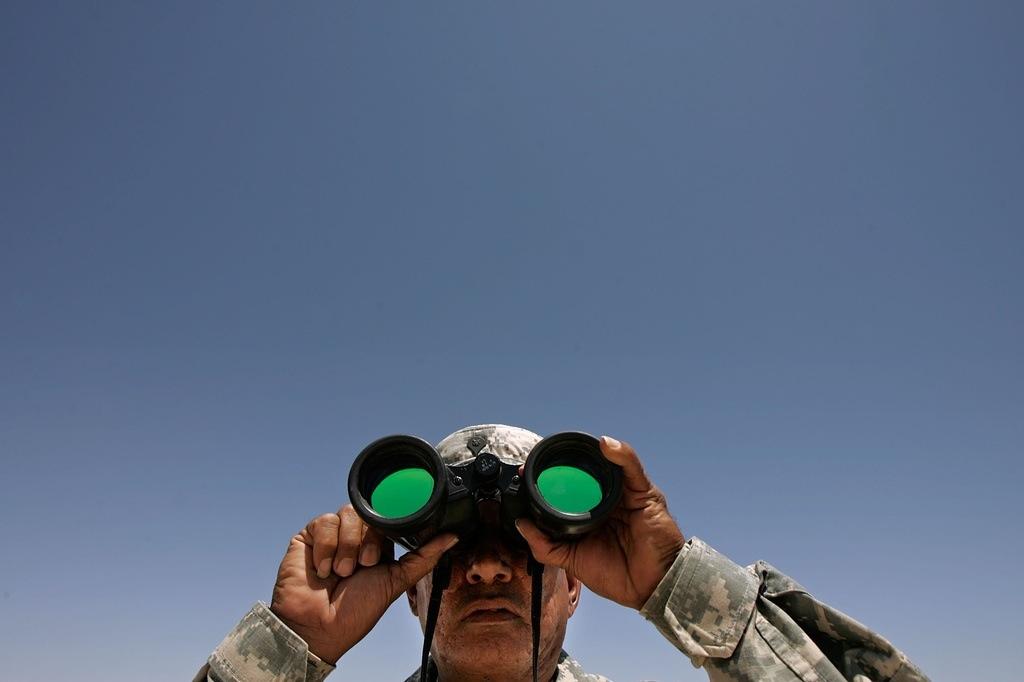Canadian man enters US using scan of his passport saved on iPad
A National Guard specialist spots three men near the U.S.-Mexico border near Sunland Park, New Mexico, on June 26, 2007.
A Montreal man convinced a US border guard to let him into the United States after showing a scanned copy of the passport saved on his Apple iPad.
Martin Reisch told the Associated Press that upon approaching the Quebec-US border, he realized he'd forgotten his passport and rather than make a two-hour journey to retrieve it, "thought I'd at least give it a try."
When presented with the iPad, a mildly annoyed US Customs and Border Protection officer "took the iPad into the little border hut," he said, the AP reported. "He was in there a good five, six minutes. It seemed like an eternity. When he came back he took a good long pause before wishing me a Merry Christmas," he added.
Canadians began needing more than a driver's license for identification for US land border crossings in 2009. US Customs and Border Protection says it only accepts a passport, an enhanced driver's license or a Nexus pass from Canadian citizens entering at land crossings. The list doesn't mention facsimiles, like scans and photocopies.
A spokesman for the department did not immediately respond to questions on whether scanned passports are also commonly accepted at US points of entry.
The Canadian broadcaster CBC cited a U.S. Customs and Border Protection statement as saying that it does allow several pieces of identification at the Canadian border, however "the list does not include a passport scan."
Reisch, 33, said the scanned passport and his driver's license helped him get through, after he told the guard he was delivering Christmas gifts to a friend's kids in Vermont, a story he insisted was true.
He said he also used the iPad scan of his passport to get through Canadian Customs on the way home later that day.
Canadian lawmaker Brian Masse described the incident as troubling because a scanned copy of a passport "is not a secure document," CBC reported.
"That could be altered, and could also lead to some precedents that would jeopardize [border] security," said Masse, who is outspoken on US-Canada border relations.
Reisch for his part said he hoped the practice would become commonplace in the near future. "I'm a huge believer in technology," he told CBC.
